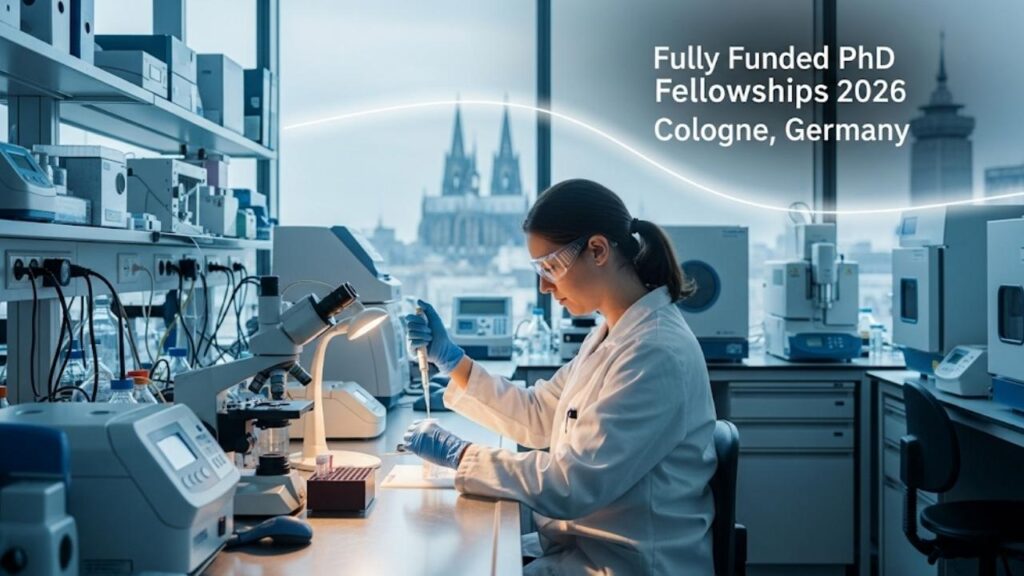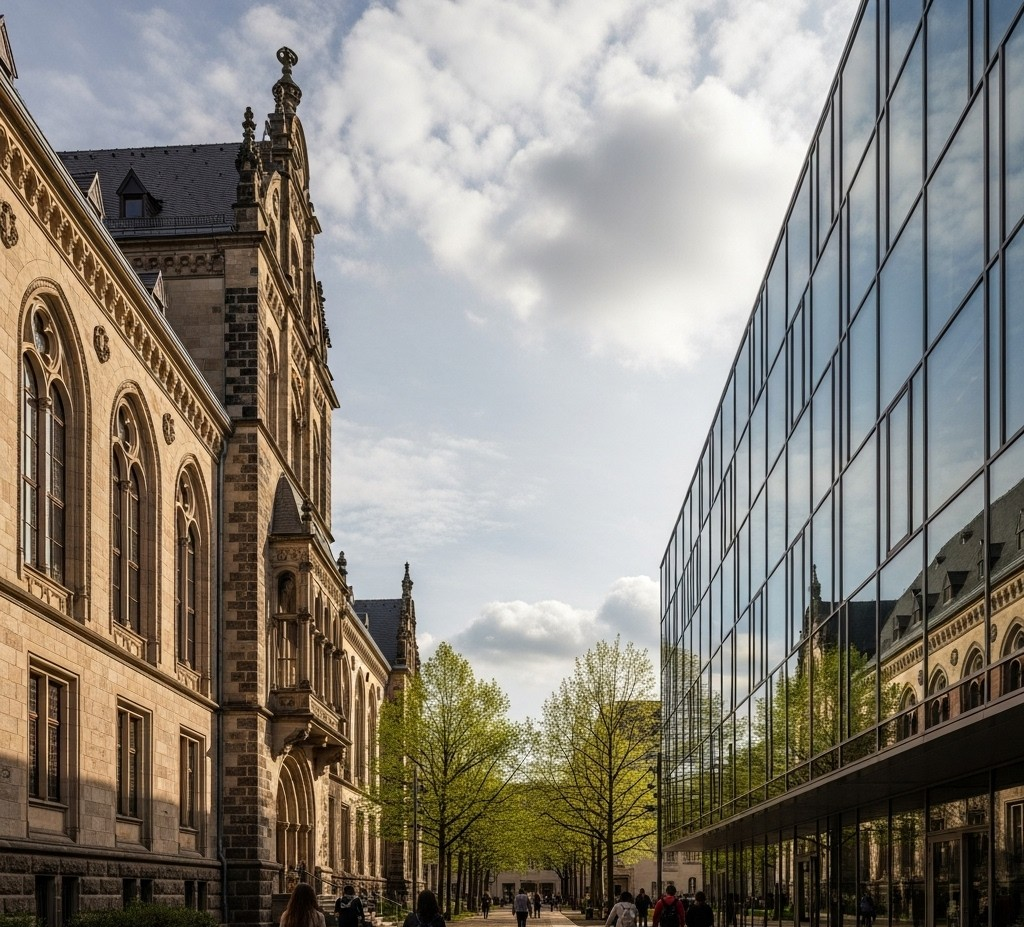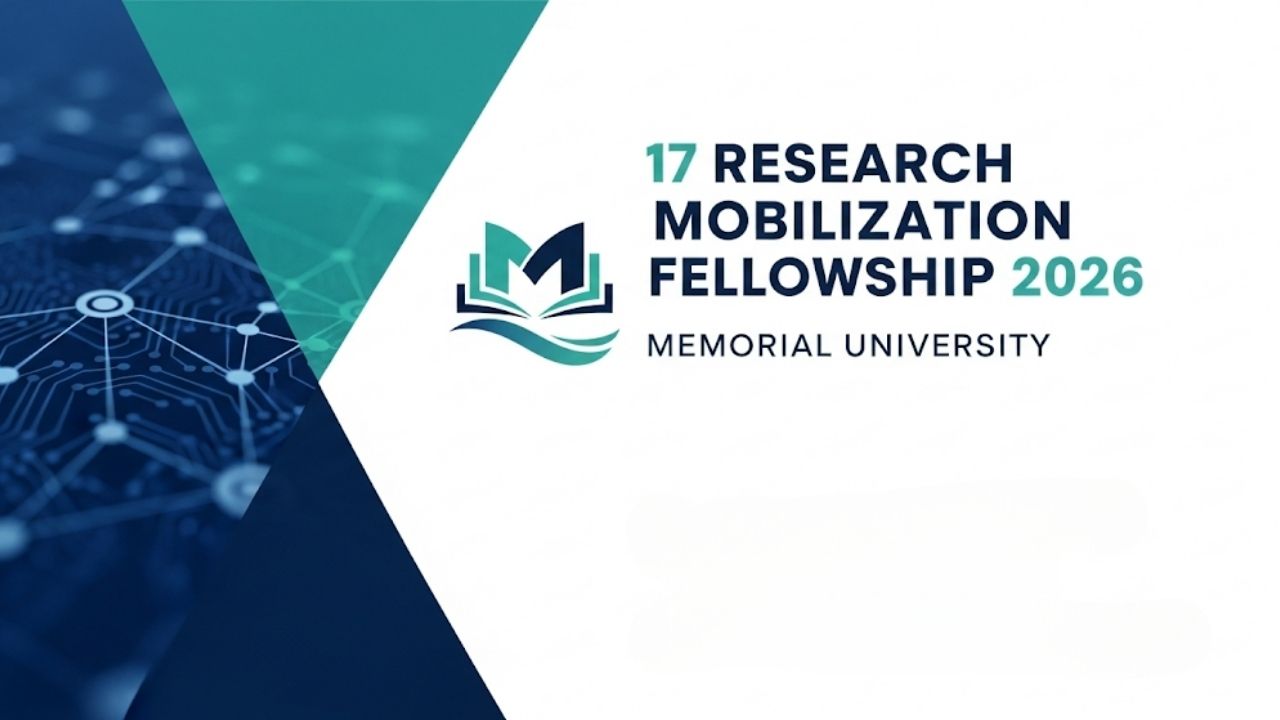Dreaming of pursuing world-class research in the heart of Europe without the burden of tuition fees? Securing one of the many fully funded PhD fellowships 2026 in Cologne, Germany, might just be the perfect next step in your academic journey. Cologne is not just a city with a breathtaking cathedral; it’s a vibrant hub of cutting-edge science and humanities research. This guide is your personal roadmap, designed to demystify the process, highlight key opportunities, and empower you to build a compelling application. Let’s turn that dream into a reality.

Why Pursue Your PhD in Cologne?
Nestled on the Rhine River, Cologne offers a unique blend of historical charm and dynamic innovation. But for an aspiring researcher, the city’s true appeal lies in its dense network of prestigious academic institutions. The University of Cologne is a designated German “University of Excellence,” placing it in the top tier of research institutions nationwide.
Beyond the university, Cologne hosts several world-renowned Max Planck Institutes, the German Aerospace Center (DLR), and other specialized research centers. This creates a powerful ecosystem of collaboration and discovery. You’re not just joining a university; you’re stepping into a city-wide campus buzzing with intellectual energy. Plus, its central location makes exploring the rest of Europe on weekends an easy and affordable adventure.

Decoding the “Fully Funded” Promise
When you see a fellowship advertised as “fully funded” in Germany, it typically means one of two things, both of which are excellent options for international students. Understanding the difference is key to managing your finances and expectations.
Work Contracts vs. Stipends
Most structured PhD programs in the natural and life sciences offer a work contract (often called TV-L E13), not a scholarship. This means you are officially an employee of the university or research institute.
- Salary: Your salary is standardized by a collective bargaining agreement. A typical part-time contract (65%) can result in a net income of around €1,800 – €2,200 per month, which is more than enough for a comfortable life in Cologne.
- Benefits: This is a major advantage! Your contract includes comprehensive health insurance, pension contributions, and unemployment insurance, just like any other employee in Germany.
A stipend or scholarship, more common in the humanities and social sciences, is a tax-free grant awarded to you. While the monthly amount (often €1,300 – €1,500) is generous, you are usually responsible for arranging and paying for your own health insurance.
Top Graduate Schools & Research Centers to Watch for 2026
The hunt for fully funded PhD fellowships in Cologne, Germany, usually starts with identifying the right graduate school. These structured programs are the primary way fellowships are advertised and awarded. They offer a supportive, cohort-based environment with a clear curriculum alongside your research.
University of Cologne’s Excellence Clusters & Graduate Schools
- Cologne Graduate School of Ageing Research (CGA): This is one of the most prestigious and well-funded programs in Europe. A joint venture with the Max Planck Institutes, the CGA offers fellowships in a highly interdisciplinary environment focused on the molecular basis of ageing. Keep an eye on their website for the fall 2025 application call for the 2026 intake.
- Graduate School for Biological Sciences (GSfBS): Covering everything from molecular plant sciences to biochemistry and clinical research, the GSfBS is a hub for budding biologists. They have regular calls for applications with dozens of funded positions.
- a.r.t.e.s. Graduate School for the Humanities: For scholars in the humanities, a.r.t.e.s. provides funded positions and an excellent interdisciplinary research environment. Funding here is often in the form of stipends.
International Max Planck Research Schools (IMPRS)
Cologne is home to some of Germany’s top Max Planck Institutes, which run their own doctoral programs known as IMPRS. These are highly competitive and offer outstanding research conditions.
- IMPRS for Biology of Ageing: Closely linked with the CGA, this program is at the global forefront of ageing research.
- IMPRS for Plant Breeding Research: Focuses on fundamental plant science, genetics, and developing the crops of the future.
Your Application Toolkit: A Step-by-Step Guide
Securing a position is a marathon, not a sprint. Preparation is everything. The application windows for a 2026 start will mostly open in late 2024 and run through mid-2025.

1. Master the Timeline
Most graduate schools have one or two application deadlines per year. Mark your calendar for September-November 2024 and April-June 2025 to start checking websites for calls for the 2026 intake. Give yourself at least three months to prepare your documents.
2. Craft a Compelling Application
Your application is your voice in the selection process. Make it count.
- Statement of Purpose (Motivation Letter): This is the heart of your application. Don’t just list your accomplishments. Tell a story. Connect your past research experience directly to the specific projects or professors you want to work with in Cologne. I’ve seen many successful applicants focus their motivation letter not just on their past achievements, but on a clear vision for their future research within that specific lab or program. Show them you’ve done your homework and are genuinely passionate about their work.
- Academic CV: Keep it concise and focused on your research experience, publications (if any), lab skills, and academic achievements.
- Letters of Recommendation: Choose professors who know you and your research capabilities well. I’ve found that a common hurdle for applicants is underestimating the time needed to secure strong, personalized letters of recommendation. Contact your referees at least a month before the deadline and provide them with your CV, statement of purpose, and details about the program.
- Transcripts and Degree Certificates: Ensure you have certified copies ready. If they are not in English or German, you will need certified translations.
- Proof of English Proficiency: Most programs require a recent TOEFL or IELTS score if you are not a native English speaker. Check the specific score requirements for each program, as they can vary.
3. Prepare for the Interview
If your written application is successful, the final step is usually an interview (often a multi-day symposium for top graduate schools). This is your chance to discuss your research interests with potential supervisors and demonstrate your scientific curiosity. Be prepared to talk about your Master’s thesis in detail and ask insightful questions about the research conducted in their labs.
Mandela Washington Fellowship 2026: From Application to Impact
FAQs
Q1:Do I need to speak German to do a PhD in Cologne?
For most programs in the natural sciences, life sciences, and many social sciences, the working language is English. You will not need German for your research. However, learning some basic German is highly recommended for daily life and will enrich your experience immeasurably. Many graduate schools offer free German language courses.
Q2:Is a Master’s degree from my home country recognized?
Generally, a Master’s degree that qualifies you for doctoral studies in your home country will be recognized in Germany. You can check the equivalency of your degree on the official Anabin database.
Q3:What is the average cost of living in Cologne for a student?
While Cologne is a major city, it is more affordable than Munich or Berlin. A single person can live comfortably on €900 – €1,200 per month. This covers rent (the biggest expense), groceries, transport, and leisure. A fully funded position will cover these costs with ease.
Q4:Can I apply to multiple PhD programs at the same time?
Yes, absolutely! It is highly recommended that you apply to several positions and programs that match your interests. This significantly increases your chances of securing a fellowship.










